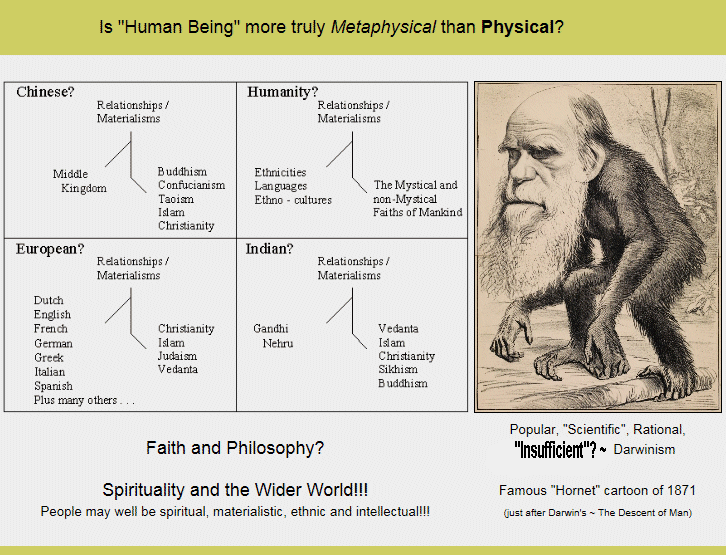Famous Historians ~ biography
European History pages
Several of them have been frequently linked to by other web sites showing that there is a fair degree of interest in biography about famous historians - "the 'geniuses' who can write about History rather than 'any fools' who can make it" - (with thanks to Oscar Wilde and all that).
Lucian (A.D. 120-200)

"The first glance at History convinces us that the actions of men proceed from their needs, their passions, their characters and talents; and impresses us with the belief that such needs, passions and interests are the sole spring of actions."
Georg Hegel, 1770-1831, German philosopher, The Philosophy of History (1837)

N.B. roots.asp has been updated as roots.html
William Gerhardi - "Historian's Credo"
From the introduction to his "The Romanovs"
Emerson's call for a "philosphical"
approach to the Study of History.
Emerson's view suggests that :-
" man is a bundle of relations, a knot of roots,
whose flower and fruitage is the world. "
"There is one mind common to all individual men.
Of the works of this mind history is the record.
Man is explicable by nothing less than all his history.
all the facts of history pre-exist as laws. Each law in
turn is made by circumstances predominant. The creation
of a thousand forests is in one acorn, and Egypt, Greece, Rome,
Gaul, Britain, America, lie folded already in the first man.
Epoch after epoch, camp, kingdom, empire, republic, democracy,
are merely the application of this manifold spirit to the
manifold world".
Towards the end of his Essay, History, Emerson asserts that :-
"every history should be written in a wisdom which
divined the range of our affinities and looked at facts as
symbols. I am ashamed to see what a shallow village tale our
so-called History is".
Famous Historians
| Fernand Braudel | |
| Jacob Burckhardt | |
| Johan Huizinga | |
| Leopold von Ranke | |
| A.J.P. Taylor | Antony Beevor |
|
The famous Essay ~ 'History' by Ralph Waldo Emerson |
|
European History pages
at Age-of-the-Sage
- The European Revolution of 1848 begins
- A broad outline of the background to the onset of the turmoils and a consideration of some of the early events.
- The French Revolution of 1848
- A particular focus on France - as the influential Austrian minister Prince Metternich, who sought to encourage the re-establishment of "Order" in the wake of the French Revolutionary and Napoleonic turmoils of 1789-1815, said:-"When France sneezes Europe catches a cold".
- The Revolution of 1848 in the German Lands and central Europe
- "Germany" had a movement for a single parliament in 1848 and many central European would-be "nations" attempted
to assert a distinct existence separate from the dynastic sovereignties they had been living under.
- The "Italian" Revolution of 1848
- A "liberal" Papacy after 1846 helps allow the embers of an "Italian" national aspiration to rekindle across the Italian Peninsula.
- The Monarchs recover power 1848-1849
- Some instances of social and political extremism allow previously pro-reform conservative elements to support the return of traditional authority. Louis Napoleon, (who later became the Emperor Napoleon III), attains to power in France offering social stability at home but ultimately follows policies productive of dramatic change in the wider European structure of states and their sovereignty.
| Italian Unification - Cavour, Garibaldi and the Unification of Risorgimento Italy |
Otto von Bismarck & The wars of German unification |
| President Woodrow Wilson Fourteen Points Speech |
|
Our most popular European History pages
Several pages on our site, treating with aspects of nineteenth century European history, have been favored with some degree of popularity, rank highly in some search engines, and receive many visitors.
The preparation of these pages was greatly influenced by a particular "Philosophy of History" as suggested by this quote from the famous Essay "History" by Ralph Waldo Emerson:-
Of the works of this mind history is the record. Its genius is illustrated by the entire series of days. Man is explicable by nothing less than all his history. Without hurry, without rest, the human spirit goes forth from the beginning to embody every faculty, every thought, every emotion, which belongs to it in appropriate events. But the thought is always prior to the fact; all the facts of history preexist in the mind as laws. Each law in turn is made by circumstances predominant, and the limits of nature give power to but one at a time. A man is the whole encyclopaedia of facts. The creation of a thousand forests is in one acorn, and Egypt, Greece, Rome, Gaul, Britain, America, lie folded already in the first man. Epoch after epoch, camp, kingdom, empire, republic, democracy, are merely the application of his manifold spirit to the manifold world.
More insights into this "Philosophy of History" as recommended by Emerson, and the history pages so-prepared, are available to those sufficiently interested, from the links further down this page:-
